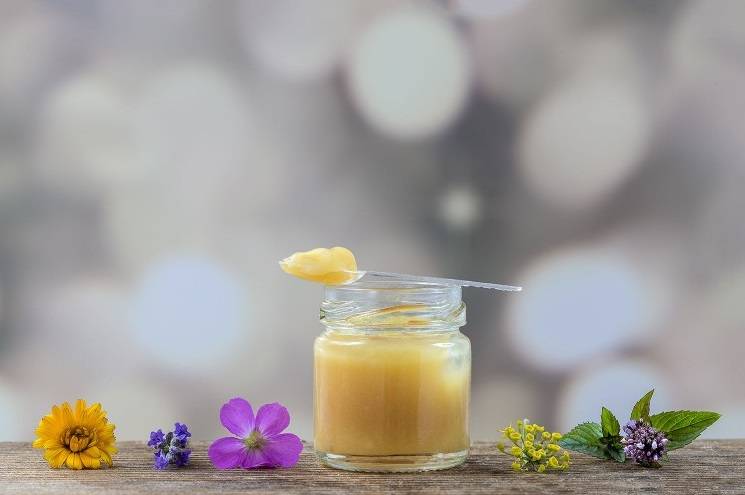Royal jelly is a highly nutritious and beneficial substance produced by honeybees and fed to their queen. However, not all royal jelly is created equal. The terms “organic,” “raw,” and “pure” are often used to describe different types of royal jelly, but what do they actually mean? And more importantly, why does it matter? In this article, we will explore the differences between organic, raw, and pure royal jelly, as well as the nutritional profile, benefits, and risks of consuming each type.
Understanding the Difference Between Organic, Raw, and Pure Royal Jelly
When it comes to royal jelly, the terms “organic,” “raw,” and “pure” can be used to describe the way in which the jelly is produced and processed.
Organic royal jelly refers to jelly that is produced from bees that are raised without the use of synthetic pesticides or fertilizers. It also means that the bees are not fed any genetically modified organisms. Organic royal jelly is also subject to strict standards of quality control.

Raw royal jelly refers to jelly that is taken straight from the hive and has not been processed or pasteurized in any way. It is considered the purest form of royal jelly, as it has not been exposed to heat or chemicals.
Pure royal jelly refers to jelly that has been processed to remove impurities and debris, but has not been pasteurized or exposed to heat. It is considered a high-quality form of royal jelly, as it has been purified without losing any of its beneficial properties.
The Nutritional Profile of Organic, Raw, and Pure Royal Jelly
All forms of royal jelly, whether organic, raw, or pure, contain a complex mixture of vitamins, minerals, amino acids, and antioxidants. However, the nutritional profile of each type may vary slightly due to the way in which it is produced and processed.
Organic royal jelly is considered to be nutritionally equivalent to raw and pure royal jelly, but it is subject to strict standards of quality control and is free from synthetic pesticides and fertilizers.
Raw royal jelly is considered to be the purest form of royal jelly, as it has not been exposed to heat or chemicals. It may also contain slightly higher levels of beneficial enzymes and nutrients due to its lack of processing.
Pure royal jelly is considered a high-quality form of royal jelly, as it has been purified without losing any of its beneficial properties. It may contain slightly lower levels of beneficial enzymes and nutrients due to its processing, but it is still considered nutritionally equivalent to raw and organic royal jelly.
The Benefits of Consuming Organic, Raw, and Pure Royal Jelly
All forms of royal jelly, whether organic, raw, or pure, can provide a wide range of health benefits due to its high nutritional content. Some of the most notable benefits include:
-Boosting energy levels -Improving skin health -Supporting immune function -Promoting healthy digestion -Reducing inflammation
Organic royal jelly is considered to be nutritionally equivalent to raw and pure royal jelly, but it is subject to strict standards of quality control and is free from synthetic pesticides and fertilizers.
Raw royal jelly is considered to be the purest form of royal jelly, as it has not been exposed to heat or chemicals. It may also contain slightly higher levels of beneficial enzymes and nutrients due to its lack of processing.
Pure royal jelly is considered a high-quality form of royal jelly, as it has been purified without losing any of its beneficial properties and may provide similar benefits as raw and organic royal jelly.
How to Incorporate Organic, Raw, and Pure Royal Jelly into Your Diet
Royal jelly can be consumed in a variety of ways, including in capsules, tablets, or in its raw form. When choosing a royal jelly supplement, it’s important to look for products that are labeled as organic, raw, or pure.
When using raw or pure royal jelly, it’s important to note that it has a strong, distinct taste and may not be suitable for everyone. It can be added to smoothies, yogurt, oatmeal, or even mixed into honey to make it more palatable. It’s also important to be aware of the storage instructions, as raw or pure royal jelly should be refrigerated to maintain its quality.
If you prefer to consume organic royal jelly capsules or tablets, you can find them at health food stores or online. It’s important to check the label for dosage recommendations and to consult with a healthcare professional before incorporating it into your diet.
The Safety and Risks of Consuming Organic, Raw, and Pure Royal Jelly
While royal jelly is considered safe for most people, there can be some potential risks and side effects. Some people may experience allergic reactions to royal jelly, including hives, itching, and difficulty breathing. Additionally, there is not enough research to determine the safety of taking royal jelly supplements long-term. It is also not recommended for people who are pregnant or breastfeeding, as well as those who are allergic to bee products.
It’s important to note that the safety and risks of consuming raw or pure royal jelly may vary depending on the source and quality of the jelly. It’s essential to ensure that the jelly is sourced from a reputable supplier and is free from contaminants.
Why Choosing Organic, Raw, and Pure Royal Jelly Matters
Choosing organic, raw, and pure royal jelly can ensure that you are getting the highest quality and most nutritious form of the jelly. Organic royal jelly is free from synthetic pesticides and fertilizers, raw royal jelly is the purest form and pure royal jelly is considered a high-quality form of jelly. By ensuring that you are consuming a high-quality form of royal jelly, you can maximize the potential health benefits and minimize the potential risks.
In conclusion, royal jelly is a highly nutritious and beneficial substance that can provide a wide range of health benefits. Choosing organic, raw, and pure forms of royal jelly can ensure that you are getting the highest quality and most nutritious form of the jelly. However, it’s important to consult with a healthcare professional before incorporating it into your diet and to be aware of the potential risks and side effects. Remember that royal jelly should be considered as a complement to a healthy diet and lifestyle and not as a sole method for health improvement.

